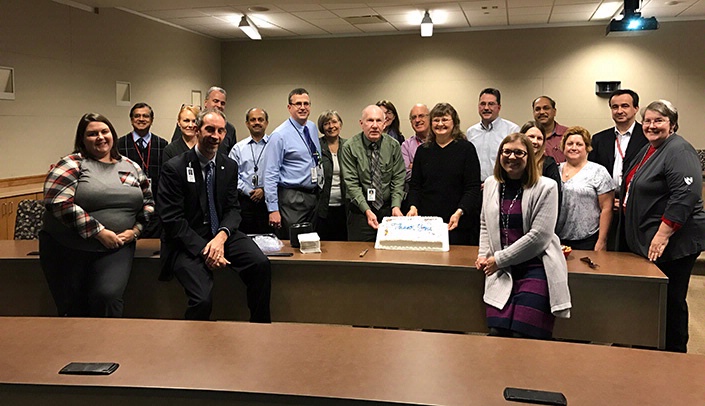EDITOR'S NOTE: The redesign of the College of Medicine curriculum is moving full speed ahead with implementation slated for the beginning of the 2017-2018 school year. To help people become more familiar with the process and gain a better understanding of what the college hopes to accomplish, InterCOM plans to carry a series of articles over the next several months on curriculum reform.
The series continues this month with a rundown of the five goals of UNMC's curriculum redesign. In subsequent articles, we will explore:
- The three phases of curriculum redesign.
- What curriculum redesign will mean to current students and future students.
- The faculty involved in curriculum redesign.
- What curriculum redesign will mean to COM faculty.
Goals of COM curriculum redesign spelled out
It has been more than 20 years since the College of Medicine last changed its curriculum.
"It was time," said Kelly Caverzagie, M.D., associate dean for educational strategy for the College of Medicine and the leader of the COM curriculum redesign effort. "We knew it had to be done if we were to remain current with what was happening around the country with other medical schools.
"More than that, we knew we could make medical school a better experience for our students and faculty. There were definitely things that needed to be done to enhance the skills of our medical students and make them better prepared for their residencies and future careers."
As the college's leaders in curriculum redesign came together, five overarching goals surfaced:
- Better integration of basic, clinical and health systems sciences throughout the curriculum to facilitate learning and application of that material to better prepare students to practice medicine in the evolving health delivery system;
- Earlier clinical learning experiences for students with a greater opportunity for career exploration prior to applying for residency;
- An enhanced M4 year with robust learning experiences to facilitate the transition into residency;
- Better incorporation of newer competencies in which the college offers purposeful learning experiences in new areas such as hospital and clinical systems or population health; and
- Help faculty and students transition into more interactive teaching styles that will facilitate student understanding, retention and ultimately the application of material learned.
"If we can accomplish these five goals, our curriculum redesign will be an unqualified success," Dr. Caverzagie said. "These are significant changes that we are confident will produce physicians who are better prepared for the new world of health care that lies ahead."
